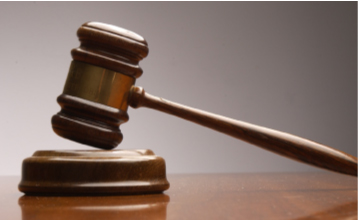The EU’s unsolicited opinion about the issue of judicial reform in Israel stems from both arrogance and ignorance. In fact, the Judicial reform proposedby the Likud party would make Israel’s procedure more similar to Europe’s.
As Israel’s political parties were negotiating the guidelines of the next government coalition, the Likud party raised the issue of judicial reform with the intention of changing the way Supreme Court judges are appointed. While this is a domestic issue and a legitimate matter of debate in an open society, the European Union expressed concern (according to Israel’s Channel 2 news) about Likud’s proposal.
The EU’s unsolicited opinion about what is strictly a domestic Israeli matter stems from both arrogance and ignorance. From arrogance, because the way Israel decides to appoint its judges is none of the EU’s business. From ignorance, because in most European countries and other western democracies, the executive and legislative branches have more influence over the appointment of judges than in Israel.
Since Israel lacks a written constitution, the separation of powers between the three branches of government was never clearly delineated. Israel’s Basic Laws outline the powers of the three branches, but since the early 1990s the judicial branch has unilaterally and dramatically expanded its powers by allowing itself to repeal legislation, by turning the legal opinions of the attorney general into instructions which the government must obey, and by granting a de facto veto power to the judiciary over the appointment of Supreme Court judges. As a result, Israel’s judiciary is both overpowered and self-appointed.
In Israel, Supreme Court judges are appointed by a committee composed of three sitting Supreme Court judges, of two representatives of the Israeli Bar Association, of two members of Knesset (one from the opposition and one from the coalition), and of two government ministers (including the Justice Minister). In 2008, the law was amended so as to require the support of all committee members taking part in the vote, minus two. Indeed, a candidate needs the support of seven committee members to be elected. Since the Supreme Court has three representatives on the committee, it has a de facto veto power over the appointment of its new members (especially since the three judges can almost always count on the support of the two representatives from the Bar). On the surface, therefore, the committee is balanced. In effect, Supreme Court judges themselves decide who will join their ranks.
By granting such power to the judiciary over the appointment of Supreme Court judges, Israel is unique among Western democracies. In other Western democracies, the supreme bodies entitled to repeal legislation are appointed by the executive and legislative branches.
In the United States, Supreme Court judges are appointed by the president, and their appointment must be approved by Congress. In Canada and in Australia, the Prime Minister and the Justice Minister have the final say on the appointment of Supreme Court judges. In Japan, Supreme Court judges are selected by the government and formally appointed by the Emperor (Supreme Court appointments must be approved every ten years by referendum).
The same goes for Europe. In Germany, Federal Constitutional Court judges are appointed by the legislative branch (the Bundestag and the Bundesrat). In France, the Conseil constitutionnel is composed of former Presidents of the Republic and of other members appointed by the executive and legislative branches, i.e. the president of the Republic, the Speaker of the National Assembly and the Speaker of the Senate. In Holland, Supreme Court judges are appointed by the government and by the Parliament. In Austria, members of the Constitutional Court are appointed by the government upon the Parliament’s recommendation. In Spain, most of the twelve members of the Constitutional Court are appointed by the legislative and executive branches: eight by the legislative, two by the executive, and two by a judicial council which is itself selected by the parliament. In Portugal, of the thirteen members of the Constitutional Court, ten are appointed by the parliament and three by a judicial council itself selected by the parliament.
Only in Britain, like in Israel, are justices and representatives from the Bar also involved in the appointment of Supreme Court judges (since the establishment of the court in 2009). But Britain’s Supreme Court does not repeal laws; it can only recommend to parliament the amendment of laws. In Israel, by contrast, the Supreme Court unilaterally granted itself the power to repeal laws.
The reform proposed by Likud (and vetoed by Moshe Kahlon, who himself had co-signed a 2007 Knesset bill which was intended to introduce some change in the appointment of Supreme Court judges) would have made Israel’s procedure more similar to Europe’s. There is, therefore, something intriguing and inexplicable in the fact that the EU expresses “concern” when Israel tries to adopt the European way of appointing Supreme Court judges.



